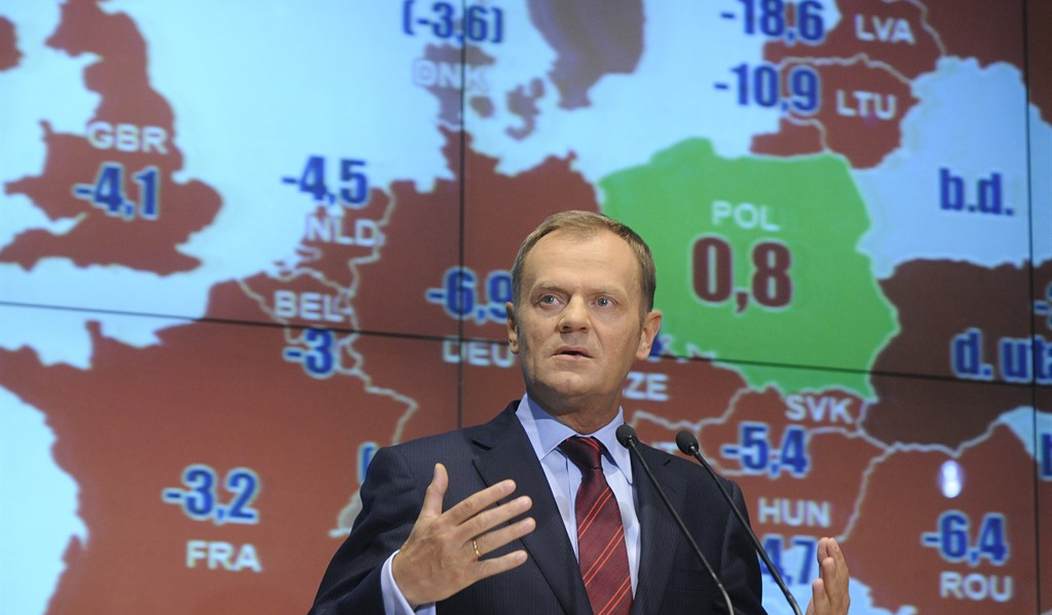What do those squiggly little demarcation lines on global maps mean? Do they demark anything?
I was under the mistaken impression they demarked the national boundaries of sovereign countries, and that’s why they are called “demarcation” lines, with all of the territory contained therein being subject to the rule of a state government.
Related: WATCH: British State Media Hack Does Migrant Propaganda, Polish MEP Immediately Slaps Her Down
I could’ve sworn learning something in school about an ephemeral thing called the… Westphalian system? Was that it?
Via Oxford Reference (emphasis added):
Term used in international relations, supposedly arising from the Treaties of Westphalia in 1648 which ended the Thirty Years War. It is generally held to mean a system of states or international society comprising sovereign state entities possessing the monopoly of force within their mutually recognized territories. Relations between states are conducted by means of formal diplomatic ties between heads of state and governments, and international law consists of treaties made (and broken) by those sovereign entities. The term implies a separation of the domestic and international spheres, such that states may not legitimately intervene in the domestic affairs of another, whether in the pursuit of self‐interest or by appeal to a higher notion of sovereignty, be it religion, ideology, or other supranational ideal. In this sense the term differentiates the ‘modern’ state system from earlier models, such as the Holy Roman Empire or the Ottoman Empire.
Apparently domestic terrorists in Germany suffer similar delusions.
The EU is here to disabuse them of their hallucinations after the government announced new checkpoints at all of its land borders.
Via The Guardian (emphasis added):
Germany’s decision to tighten controls at every one of its land borders seems driven chiefly by politics, is difficult to justify in law, deals a heavy blow to Europe’s prized free movement and could severely test EU unity.
Berlin said on Monday that controls in place at its border with Austria since 2015, and since last year with Poland, the Czech Republic and Switzerland, would be extended next week to France, Luxembourg, Belgium, the Netherlands and Denmark.
The move would curb migration and “protect against the acute dangers posed by Islamist terrorism and serious crime,” said Nancy Faeser, the interior minister.
Let us consider that the German government has seen the writing on the wall regarding the ascendent AfD in the East, which I have covered for PJ Media, and is using these checkpoints as political theater in a desperate bid to stave off a landslide defeat in the next national elections.
Continuing:
The most recent in a series of deadly knife attacks in which the suspects were asylum seekers, in Solingen last month, came days before crunch regional elections in eastern Germany that resulted in the far-right, anti-immigration Alternative for Germany (AfD) party scoring historic successes in two states.
Polls show migration is also voters’ biggest concern in Brandenburg, which holds its own elections in a fortnight – with Olaf Scholz’s centre-left Social Democratic party forecast to finish behind the far-right party – and the chancellor’s ailing coalition seems to be heading toward a crushing defeat in federal elections next year.
“The intention of the government seems to be to show symbolically to Germans and to potential migrants that the latter are no longer wanted here,” said Marcus Engler of the German Centre for Integration and Migration Research.
Faeser said the new controls would include a scheme allowing more people to be turned back directly at the border, but declined to go into detail. Officials and diplomats in Brussels have expressed dismay, calling the move “transparent” and “obviously aimed at a domestic audience."










